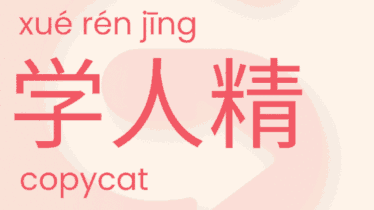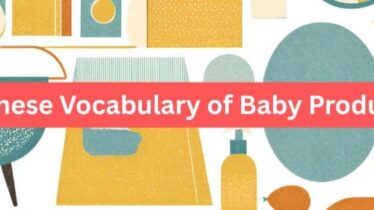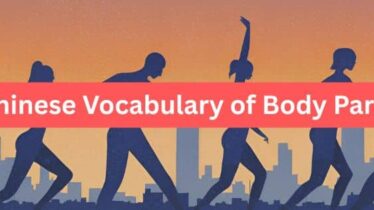The Complete HSK 1 Vocabulary List for Beginners Learning Mandarin Chinese
Learning new vocabulary words is essential for success when starting to learn any new language. The HSK vocabulary lists created by the HSK Authority provide a structured way for Mandarin learners to methodically build up their knowledge of commonly used words and characters.
HSK 1 is the first level of the HSK exam and contains the most basic and useful Chinese words and phrases. Mastering the HSK 1 vocab list will give beginner students a strong foundation to build upon as they advance to higher HSK levels.
In this complete guide, we will cover everything you need to know about the HSK 1 word list including:
- The benefits of learning HSK vocab
- Number of words in the HSK 1 list
- Types of words included
- Example sentences for each word
- Tips for effective vocabulary study
- Full HSK 1 word list with English translations
- HSK 1 word list organized by theme
- Quizlet flashcards for HSK 1 vocab
- Resources for further study
Learning HSK Vocabulary Opens Doors to Chinese Mastery
The HSK vocabulary lists were specially designed to include the terms you’ll encounter most frequently in Chinese listening, speaking, reading, and writing. Focusing your initial vocabulary study on the HSK word lists allows you to:
- Build an essential foundation for communicating in Chinese
- Improve comprehension of spoken and written Chinese
- Increase ability to express yourself clearly in Chinese
- Expand ability to understand Chinese media, books, news, etc
- Prepare efficiently for the HSK standardized proficiency tests
- Gain confidence through achieving small wins at each HSK level
The tiered system of the new HSK exam allows you to incrementally work up to advanced Chinese ability. Conquering the 150 words at HSK 1 first will give you the basic building blocks before moving on to more complex vocabulary.
Overview of Words in the HSK 1 Vocabulary List
The HSK 1 list includes:
- individual Chinese vocabulary words
- additional common word combinations
The individual words include basic nouns, verbs, adjectives, and prepositions needed for rudimentary communication. For example, words like “student”, “teacher”, “tall”, “small”, “man”, “woman”, “in”, “on”, “under”, etc.
The word combinations expand vocabulary by introducing simple phrases like “how much”, “have no”, “a little”, “take a taxi”, “go shopping”, etc.
All words are represented in both simplified Chinese characters and pinyin Romanization.
Example Sentences for HSK 1 Vocabulary in Context
Learning words in isolation is not enough. You need exposure to vocabulary words used properly in context to fully grasp them.
The HSK vocabulary lists provide excellent example sentences that demonstrate how each word is used in real life. For instance, the HSK 1 word 高兴 gāoxìng meaning “happy” is shown with:
今天我很高兴!Jīntiān wǒ hěn gāoxìng! I’m very happy today!
Seeing and using new vocab in context through example sentences builds your intuitive understanding.
Tips for Studying HSK 1 Vocabulary Effectively
Here are some top tips for getting the most out of your HSK 1 vocabulary study time:
- Use SRS flashcards to drill frequently
- Learn words in the context of example sentences
- Focus on practical everyday words first before academica
- Say the words out loud when practicing
- Apply new words immediately in your own sentences
- Reinforce meanings with images, videos, and translations
- Study vocabulary along with other HSK skills like grammar
- Revisit difficulty words more often (“productive repetition”)
- Monitor progress by taking practice quizzes
OK, now let’s dive into the complete HSK 1 word list!
HSK 1 Vocabulary List with English Translations
| จีน | Pinyin | English |
|---|---|---|
| Personal Pron. | ||
| 我 | wǒ | I, me |
| 我们 | wǒmen | we, us (pl.) |
| 你 | nǐ | you |
| 你们 | nǐmen | you (pl.) |
| 他 | tā | he, him |
| 她 | tā | she, her |
| 他们 | tāmen | they (male+female / male, pl.) |
| 她们 | tāmen | they (females, pl.) |
| Demonstrative Pron. | ||
| 这 (这儿) | zhè ( zhèr) | here, this |
| 那 (那儿) | nà (nàr) | there, that |
| Interrogative Pron. | ||
| 哪(哪儿) | nǎ (nǎr) | where |
| 谁 | shuí | who |
| 什么 | shén me | what, why |
| 多少 | duōshǎo | how many, how much |
| 几 | jǐ | a few, how many |
| 怎么 | zěnme | how |
| 怎么样 | zěnmeyàng | how about |
| Numberal | ||
| 一 | yī | one |
| 二 | èr | two |
| 三 | sān | three |
| 四 | sì | four |
| 五 | wǔ | five |
| 六 | liù | six |
| 七 | qī | seven |
| 八 | bā | eight |
| 九 | jiǔ | nine |
| 十 | shí | ten |
| 零 | líng | zero |
| Quantifier | ||
| 个 | gè | one, a, an |
| 岁 | suì | year |
| 本 | běn | volume |
| 些 | xiē | some |
| 块 | kuài | piece |
| Adverb | ||
| 不 | bù | no |
| 没 | méi | no |
| 很 | hěn | quite, very |
| 太 | tài | too |
| 都 | dōu | all |
| Conjunction | ||
| 和 | hé | and |
| Preposition | ||
| 在 | zài | in, at |
| Auxiliary | ||
| 的 | de | |
| 了 | le | |
| 吗 | ma | |
| 呢 | ne | |
| Interjection | ||
| 喂 | wèi | hello |
| Noun | ||
| 家 | jiā | home |
| 学校 | xuéxiào | school |
| 饭店 | fàndiàn | restaurant |
| 商店 | shāngdiàn | store |
| 医院 | yīyuàn | hospital |
| 火车站 | huǒchēzhàn | train station |
| 中国 | zhōng guó | China |
| 北京 | běijīng | Beijing |
| 上 | shàng | up |
| 下 | xià | down |
| 前面 | qiánmiàn | front |
| 后面 | hòumiàn | behind |
| 里 | lǐmiàn | inside |
| 今天 | jīntiān | today |
| 明天 | míngtiān | tomorrow |
| 昨天 | zuótiān | yesterday |
| 上午 | shàngwǔ | morning |
| 中午 | zhōngwǔ | noon |
| 下午 | xiàwǔ | afternoon |
| 年 | nián | year |
| 月 | yuè | month |
| 日 | rì | day |
| 星期 | xīngqī | week |
| 点 | diǎn | dot, spot |
| 分钟 | fēnzhōng | minute |
| 现在 | xiànzài | now |
| 时候 | shíhou | time |
| 爸爸 | bàba | father |
| 妈妈 | māma | mother |
| 儿子 | érzi | son |
| 女儿 | nǚér | daughter |
| 老师 | lǎoshī | teacher |
| 学生 | xuéshēng | student |
| 同学 | tóngxué | shoolmate |
| 朋友 | péngyou | friend |
| 医生 | yīshēng | doctor |
| 先生 | xiānsheng | sir |
| 小姐 | xiǎojiě | Miss |
| 衣服 | yīfu | cloth |
| 水 | shuǐ | water |
| 菜 | cài | vegetable |
| 米饭 | mǐfàn | rice |
| 水果 | shuǐguǒ | fruit |
| 苹果 | píngguǒ | apple |
| 茶 | chá | tea |
| 杯子 | bēizi | cup |
| 钱 | qián | money |
| 飞机 | fēijī | airplane |
| 出租车 | chūzūchē | taxi |
| 电视 | diànshì | television |
| 电脑 | diànnǎo | computer |
| 电影 | diànyǐng | movie |
| 天气 | tiānqì | weather |
| 猫 | māo | cat |
| 狗 | gǒu | dog |
| 东西 | dōngxi | thing |
| 人 | rén | person |
| 名字 | míngzi | name |
| 书 | shū | book |
| 汉语 | hànyǔ | mandarin Chinese |
| 字 | zì | character |
| 桌子 | zhuōzi | desk |
| 椅子 | yǐzi | chair |
| Verb | ||
| 谢谢 | xièxie | thank |
| 不客气 | búkèqì | you are welcome |
| 再见 | zàijiàn | good-bye |
| 请 | qǐng | please |
| 对不起 | duìbùqǐ | sorry |
| 没关系 | méiguānxì | It doesn’t matter |
| 是 | shì | be (am, is, are) |
| 有 | yǒu | have |
| 看 | kàn | look |
| 听 | tīng | listen |
| 说话 | shuōhuà | speak |
| 读 | dú | read |
| 写 | xiě | write |
| 看见 | kànjiàn | see |
| 叫 | jiào | call |
| 来 | lái | come |
| 回 | huí | return |
| 去 | qù | go |
| 吃 | chī | eat |
| 喝 | hē | drink |
| 睡觉 | shuìjiào | sleep |
| 打电话 | dǎdiànhuà | call up |
| 做 | zuò | do |
| 买 | mǎi | buy |
| 开 | kāi | open |
| 坐 | zuò | sit |
| 住 | zhù | live |
| 学习 | xuéxí | study |
| 工作 | gōngzuò | work |
| 下雨 | xiàyǔ | rain |
| 爱 | ài | love |
| 喜欢 | xǐhuān | love, like |
| 想 | xiǎng | want |
| 认识 | rènshi | know |
| 会 | huì | can |
| 能 | néng | can, be able to |
| Adjective | ||
| 好 | hǎo | good |
| 大 | dà | big |
| 小 | xiǎo | small |
| 多 | duō | many, much |
| 少 | shǎo | few, little |
| 冷 | lěng | หนาว |
| 热 | rè | hot |
| 高兴 | gāoxìng | happy |
| 漂亮 | piàoliàng | beautiful |



